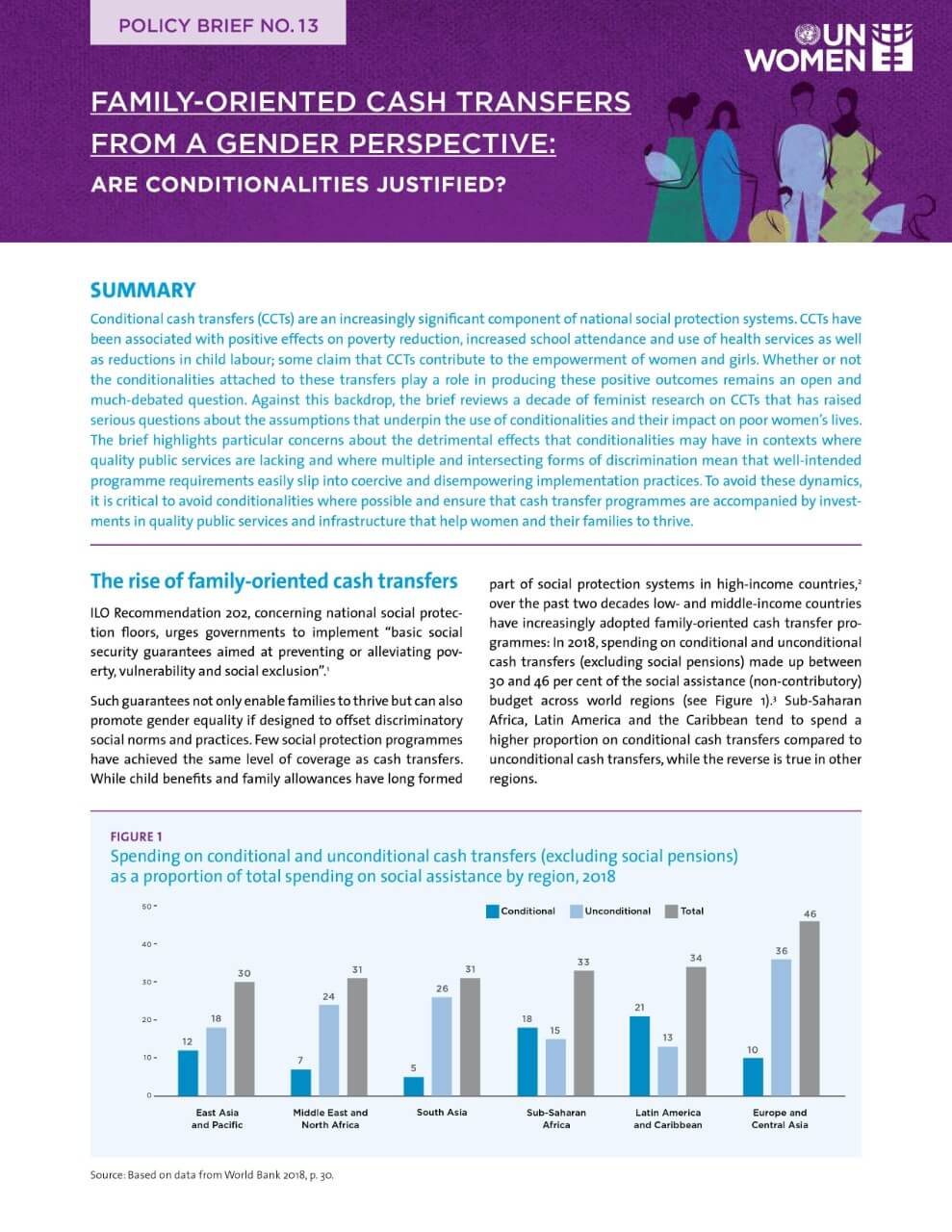Family-oriented cash transfers from a gender perspective: Are conditionalities justified?
Conditional cash transfers (CCTs) are an increasingly significant component of national social protection systems. CCTs have been associated with positive effects on poverty reduction, increased school attendance and use of health services, as well as reductions in child labour. Some claim that CCTs contribute to the empowerment of women and girls. Whether or not the conditionalities attached to these transfers play a role in producing these positive outcomes remains an open and much-debated question.
Against this backdrop, the brief reviews a decade of feminist research on CCTs that has raised serious questions about the assumptions that underpin the use of conditionalities and their impact on poor women’s lives. The brief highlights particular concerns about the detrimental effects that conditionalities may have in contexts where quality public services are lacking and where multiple and intersecting forms of discrimination mean that well-intended programme requirements easily slip into coercive and disempowering implementation practices. To avoid these dynamics, it is critical to avoid conditionalities where possible and ensure that cash transfer programmes are accompanied by investments in quality public services and infrastructure that help women and their families to thrive.
This brief was written by Tara Patricia Cookson, Director of Ladysmith, building on a previous expert paper by the same author for the UN Women–convened expert group meeting in preparation for the 63rd session of the Commission on the Status of Women.










